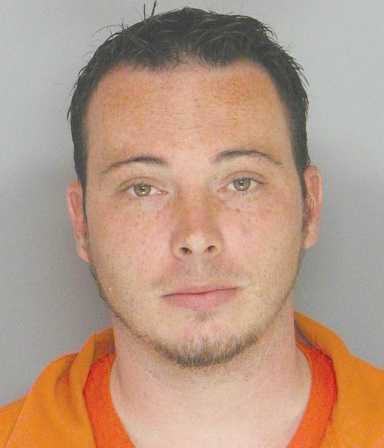The Georgia Supreme Court on Friday threw out one conviction of a Gainesville man who falsely claimed he had killed 16 people in an online video, but upheld his conviction on a second charge of lying to police.
The court ruled that prosecutors lacked evidence to prove Andrew Scott Haley, 28, had tampered with evidence in any unsolved case and ordered his conviction overturned on that charge.
The court upheld his conviction of making false statements in a police investigation, despite arguments from his attorneys that his comments in a 2009 YouTube video were protected speech under the First Amendment.
The Supreme Court ultimately concluded there was enough evidence to convict Haley of making false statements because he told lies that dealt with real, unsolved cases that obviously would have attracted attention from authorities.
"Haley knew and intended that his false statement as the ‘catchmekiller' would come to the attention of a state or local government agency in Georgia that had the power to act on it," Justice David Nahmias wrote for the court.
Despite the higher court's decision to overturn part of Haley's conviction, Hall County District Attorney Lee Darragh said he was pleased with the outcome Friday.
He said the parts of Haley's conviction that were upheld were among the most significant and "rightfully vindicated" the prosecution.
Haley's actions "prompted an extensive investigation to determine whether or not his claims were true, at great cost to the taxpayers," Darragh said.
The Georgia Bureau of Investigation spent hundreds of hours tracking down "catchmekiller" before finding Haley in Gainesville.
He was convicted in May 2010 in Hall County Superior Court and sentenced to two years in a work-release jail.
Haley's short videos, which were posted online in early February 2009, showed him with his face digitally blacked out and speaking in a deep, electronically altered voice. At the end of one video are clues that reference the case of a missing Ocilla woman, Tara Grinstead, missing since 2005.
Haley also posted a link to the video on a Web page dedicated to a missing Florida woman, Jennifer Kesse of Orlando, along with the words, "Maybe I can help."
Haley sent a link to the video to Kesse's father, who called authorities.
Haley, who testified in his own defense in 2010, never denied posting the videos. He insisted the video was intended to be a fictional game.
The families of the two missing women said in 2010 that they were thrown into emotional turmoil by the videos, which were credited to "catchmekiller."
Haley's attorney, Kristin Jordan, did not return messages seeking comment Friday.
Times reporter Ashley Fielding contributed to this report.

